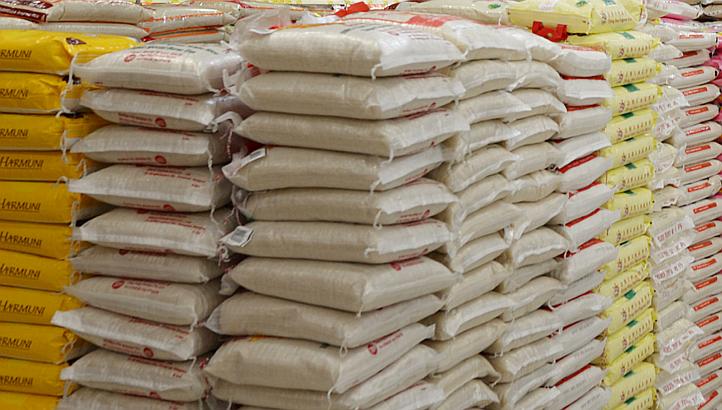Like the immortal lyrics of Afro legend, Fela Anikulapo-Kuti, ‘double wahala for dead body and the owner of dead body’, some South West governors were at the weekend faced with double jeopardy of handling the burden that comes with supposed expired palliative rice sent to the region by President Muhammadu Buhari-led government while still struggling to contain pressures of curtailing spread of deadly Covid-19.
Recall that TheNewsGuru (TNG) had earlier reported that Oyo State Government would return bags of rice received from the Federal Government, after discovering it is in bad condition.
In the same vein, Ondo State Government has rejected some of the expired bags of rice from the 1,800 bags sent to the state by the Federal Government, while Osun State government claimed that the FG’s palliative rice is presently undergoing quality control checks in the state.
Speaking to newsmen, the Chief Press Secretary (CPS) to Osun State Governor, Mr Ismail Omipidan, acknowledged receiving the rice from the FG but added that it was undergoing “quality control” checks.
Reports reaching TNG is that some of the states in South West governed by All Progressives Congress (APC) have refused to open up on the worrisome state of the FG’s expired palliative rice due to their political affiliation with the Buhari-led government.
Meanwhile, Lagos and Ogun state have commenced distribution of the rice to their people. In Lagos, one Iyabo Johnson raised an allegation on Twitter that she got an expired rice from the government, but the report has since been refuted by Governor Jide Sanwo-Olu.
The story in Ondo is similar to that of Oyo:
Governor, Mr Rotimi Akeredolu, has ordered the return of some bags of rice sent to the state by the Federal Ministry of Humanitarian Affairs and Disaster Management as they were found to have expired.
Speaking on the development, the Secretary of the state palliative committee, Mr Alex Kalejaiye, confirmed that some of the bags of rice had expired and were no longer fit for consumption.
According to him, the bad rice will be separated from the good ones and the good ones will be taken to the laboratory to ascertain if they were fit for human consumption.
He said, “We discovered that some of the bags have expired and not good for consumption at all, so we are separating them from the ones that are still manageable for consumption. After this, we will still take the ones that appear good to the laboratory to test if they are fit for consumption.”
It was gathered that when it was discovered that some of the rice had expired, the governor reportedly ordered that they should be rejected.
Akeredolu, who officially received the palliative items at the Government House ground, Alagbaka from the state coordinating unit of the Youths Empowerment and Social Support Operations, last week, was said to have expressed displeasure over the development.
Kalejaiye said, “They brought many bags of rice, we just carried out a random check on them to discover the ones that are not good. What we are trying to do is to separate those ones that appeared bad from those ones that appeared good then we will carry out laboratory tests on them to ascertain whether they are safe for consumption before giving them out to our people.
“Some are expired, it is even written on the bags but some are not expired but it seemed they were not properly stored, and those ones are not properly stored would not be good to be given to our people without carrying out the laboratory test.
“We will separate the extremely bad ones from the rest and we will carry out the laboratory test on those ones that appear good, to ascertain how safe they are for consumption. But the extremely bad ones, we don’t even need to do a test on them, we will return them.
“We will meet tomorrow (today) to decide when to return them, you know we can’t do it without the consent of Mr Governor.”



